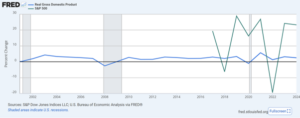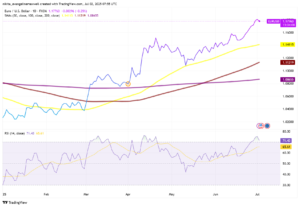Bitcoin recently surged to a record high of $107,000, driven by President-elect Donald Trump's renewed plans to establish a U.S. Bitcoin Strategic Reserve. This announcement has ignited enthusiasm among crypto investors and stirred widespread debate about the feasibility and implications of such a reserve.
So, what exactly is a Bitcoin Strategic Reserve, how would it work, and what impact could it have? Let’s break it down in simple terms.
What is a Strategic Reserve?
A strategic reserve is a stockpile of a critical resource that can be used during times of crisis or significant disruptions. The most notable example is the U.S. Strategic Petroleum Reserve (SPR), established in 1975 after the 1973-74 oil crisis. The SPR serves as a buffer during emergencies, such as wars or natural disasters, that impact energy supplies.
Other countries maintain similar reserves for specific resources. For example:
- Canada has a strategic reserve of maple syrup.
- China holds reserves of metals, grains, and even pork products.
How Would a U.S. Bitcoin Strategic Reserve Work?
The proposal to create a Bitcoin Strategic Reserve raises both legal and operational questions. Experts are divided on whether such a reserve could be established via an executive order or if it would require congressional approval.
-
Executive Order Possibility:
Some believe Trump could direct the U.S. Treasury’s Exchange Stabilization Fund (ESF) to hold Bitcoin. The ESF is typically used to stabilize foreign currencies, and theoretically, it could include Bitcoin under new directives. -
Seized Bitcoin as a Foundation:
The U.S. government currently holds around 200,000 Bitcoin seized from criminal activities. At current market prices, this stockpile is worth approximately $21 billion. Trump has suggested that this could serve as the foundation for the reserve, though the process of transferring these assets from the Justice Department to the Treasury remains unclear. -
Purchasing More Bitcoin:
If the government plans to buy additional Bitcoin, it would need to finance these purchases. One option could be issuing new debt, although some proponents argue that the government could sell a portion of its gold reserves to fund Bitcoin purchases.
Existing Proposals and Congressional Plans
The most detailed proposal for a Bitcoin reserve comes from Senator Cynthia Lummis, a Republican and prominent Bitcoin advocate. Lummis, who personally owns five Bitcoin, introduced a bill in July outlining a framework for the reserve.
Key Points of Lummis’s Proposal:
- The U.S. Treasury would purchase 200,000 Bitcoin annually over five years.
- By the end of the program, the reserve would total 1 million Bitcoin, equivalent to about 5% of the total global Bitcoin supply (21 million).
- Funding for the purchases would come from profits generated by Federal Reserve deposits and gold holdings, avoiding additional national debt.
While this proposal has yet to gain significant traction, it sets a precedent for policymakers interested in integrating Bitcoin into national financial strategies.
Potential Impacts of a Bitcoin Strategic Reserve
-
Market Confidence and Stability:
If the U.S. government formally adopts Bitcoin as part of its reserves, it would legitimize Bitcoin as a store of value and further stabilize its price. Such a move could encourage other countries to follow suit. -
Economic Security During Crises:
Bitcoin’s decentralized nature makes it less vulnerable to political or economic disruptions compared to fiat currencies. In scenarios like currency devaluation or financial crises, Bitcoin could act as a hedge, protecting the U.S. economy. -
Market Disruptions and Challenges:
Large-scale Bitcoin purchases could lead to short-term price surges, volatility, or liquidity issues. Additionally, the legal and procedural hurdles for establishing such a reserve remain significant.
Challenges and Feasibility
While the idea of a Bitcoin Strategic Reserve is innovative, it faces several challenges:
- Legal Hurdles: Can Bitcoin be integrated into existing financial systems without congressional approval?
- Operational Complexity: How will the government manage and secure its Bitcoin holdings?
- Market Impact: Will public market purchases of Bitcoin cause price instability?
Despite these questions, the proposal signals growing acceptance of Bitcoin within mainstream financial policy discussions.
Looking Ahead
The U.S. Bitcoin Strategic Reserve remains a concept, but it represents a groundbreaking shift in how governments approach cryptocurrency. For investors, this development highlights Bitcoin’s evolving role as a legitimate asset class and its increasing integration into traditional financial systems.
In the coming months, policymakers’ discussions and market reactions to this proposal will be closely watched. Whether or not the plan comes to fruition, the mere suggestion of a Bitcoin reserve has already positioned Bitcoin as a central player in future economic strategies.
Conclusion
A U.S. Bitcoin Strategic Reserve is an ambitious and forward-thinking idea that could transform Bitcoin’s role in the global economy. While the proposal faces significant hurdles, it has already fueled enthusiasm in the crypto market and opened new discussions about Bitcoin’s place in national reserves. For global investors and traders, this marks a critical development worth tracking closely.





